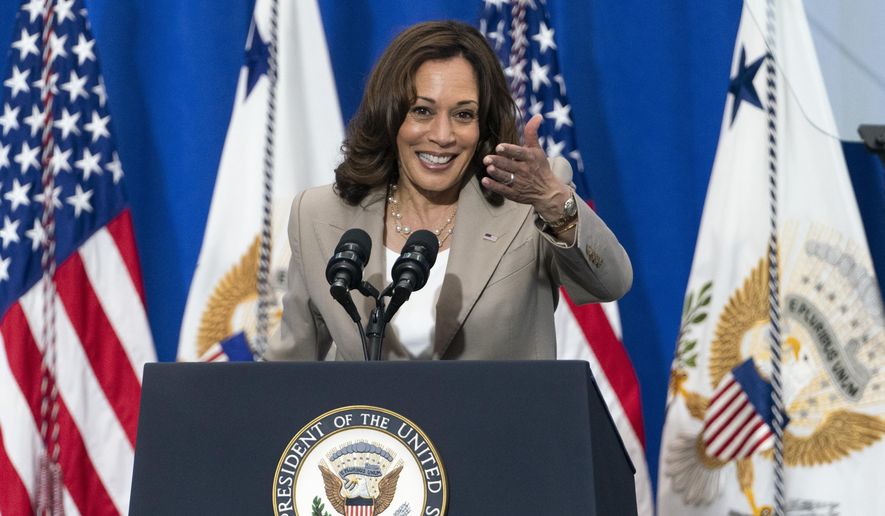Vice President Kamala Harris and U.S. Surgeon General Dr. Vivek Murthy are sounding the alarm Monday over health worker “burnout” because of systemic challenges in the sector and the pandemic’s toll.
In a formal advisory, Dr. Murthy said more than 500,000 registered nurses will retire by the end of 2022.
The U.S. faces a projected shortage of more than 3 million low-wage health workers over the next five years and a shortage of nearly 140,000 doctors by 2033, he said.
Ms. Harris and Dr. Murthy will highlight the situation during a visit to Children’s National Hospital in Washington, D.C., where they’ll discuss the situation and findings in Dr. Murthy’s advisory.
Dr. Murthy said that even before the coronavirus pandemic, there were signs of burnout — broadly defined as “a state of emotional exhaustion, depersonalization, and low sense of personal accomplishment at work.”
Now, more than 50% of public health workers report symptoms of at least one mental health condition, such as anxiety, depression and increased levels of post-traumatic stress disorder (PTSD).
“COVID-19 has been a uniquely traumatic experience for the health workforce and for their families, pushing them past their breaking point. Now, we owe them a debt of gratitude and action. And if we fail to act, we will place our nation’s health at risk,” Dr. Murthy said.
Surgeon general advisories are statements that call the public’s attention to health challenges that need immediate attention. Earlier in the pandemic, he sounded the alarm over bogus information about vaccines.
The surgeon general outlined a series of recommendations to reverse the trend. He said health centers should seek the workers’ input on how the workplace operates and eliminate any policies that punish workers for seeking mental health or substance health treatment.
He said staffing levels should be adequate and reflect the communities they serve. Hospitals should have adequate supplies of personal protective equipment and protect workers’ personal security amid a rise in verbal attacks and workplace violence during the pandemic, the advisory said.
Workplaces should ensure that workers connect, socially, and eliminate administrative tasks that consume up time that should be spent with patients.
He also recommended a series of economic and social supports.
“Provide living wages, paid sick and family leave, rest breaks, evaluation of workloads and working hours, educational debt support, and family-friendly policies including childcare and care for older adults for all health workers,” the advisory said.
For more information, visit The Washington Times COVID-19 resource page.
• Tom Howell Jr. can be reached at thowell@washingtontimes.com.




Please read our comment policy before commenting.